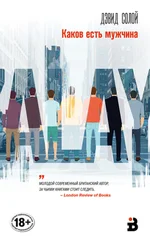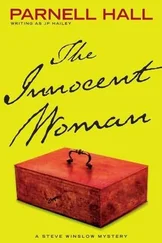In the last years of her life, she was a fervent supporter of the kolkhoz system. Of one such farm she said, I was there for only five days but it seemed that I saw a new world. I know that in different places different things are happening – including some terrible things – but it makes me so happy to know that mankind has set out on the right path. We will have a new life, and new people . Even then she wrestled with the legacy of her education, and she still felt unable to march with the new generation . This was not just a metaphor. She longed to take part in the marches and parades that she saw – or, isolated on the farm as she was, more often heard on the radio. On May Day 1936, she wrote, Yesterday I was sad that I knew no one I could visit for the holiday, but today I was among my own family – on Red Square in Moscow, at the People’s Palace in Voronezh, in Baku, Kiev and other places. For the whole day I have been in touch with the holiday through the radio. For the whole day I have not felt alone .
In February 1937, she was transferred from the farm to the Urals Agricultural Institute in Sverdlovsk, where she lectured on subjects such as ‘the dialectics of the poultry egg’. Her workload was heavy, and her health was poor. Then on May Day she celebrated with students and teachers from all over the city, and for the first time in her life she marched in the parade.
Yesterday – an evening meeting in the barracks. Today – the parade. Exhaustion hampers my feelings of joy. But more important is the sense of merging with everybody who celebrated this day. All of us, our institute, all the other institutes, the workers’ faculties and schools, all the workers, all the Red Army soldiers, all of us – were one. We all marched together – with the same songs and thoughts. This time I did not see the ‘face of the people’, because I myself was part of it, I was a drop in the sea, I was forming the ‘1st of May’, and wasn’t just an onlooker. I’m extremely tired. First we waited for three hours, then we marched quickly. I almost got sick. I hardly managed to get home but I am happy to have done this. Perhaps this was the first and last time I will participate in a parade .
When she took part in this parade Denisevskaya was dying. She died only a few months later, and this is one of the final entries in her diary. Aleksandr sent it to the Sverdlovsk Library, with this note: Please find enclosed the diary of Zinaida Denisevskaya, who once worked at your library. I think it is worth preserving for posterity. It is the story of a lifelong struggle, with loneliness, with social isolation, with political error. However, when you read the final entries your heart overflows with joy. You see how the face of this person lights up, the face of a Soviet person, who was deeply passionate about educating the liberated people, the makers of a new life – and finally, in the supreme moment of her own existence, on May Day 1937, she herself was one of them, and she made a new life .
When he went to see her in the flat on Karl Libknekht Street, the talk often moved to politics, history, philosophy. Sometimes it was very earnest. Sometimes it had the quality of intellectual play – like her husband, she enjoyed this, and took the sparring seriously. Usually she made tea. They sat at Shtern’s table, sipping this tea and trying to find the tone – easy, flowing, languorous, with no particular purpose, full of silences – that had made the endless wet afternoons at Metelyev Log what they were. When he thought of those afternoons, he thought of her leaning on the pine dresser, smoking, her face turned to the windows, and the smoke from her papirosa swimming listlessly towards them. The rain falling steadily. Time was so extended, so open-ended. There seemed to be no sort of external pressure at all.
In Sverdlovsk, when he went to see her, it was not like that. Not that it was tense or stilted. It was not. It simply lacked the sense of taking place in an isolated oxbow of time. No-particular-purpose did not seem as permissible as it had in the oxbow. Silences seemed to be minor problems when someone would eventually leave, when time was limited, when they were together not simply because that was how things inescapably were, but with a specific intention – though sometimes, sitting there, it was not obvious to him what that intention was. Sometimes, when the silence settled, even for only a few seconds, while she sat opposite him, smoke wreathing her tired face, he would think, What am I doing here? I’ll leave when I’ve finished this tea . And even look forward to leaving. Then the silence would pass – someone would say something – and two hours later he would still be there.
Once or twice a week he took her to the baths, signing her in to the First Department, and waiting for her in the foyer afterwards, his skin still tingling from the banya . Waiting there, he was always nervous – as he was wherever he went with her – that someone he knew would see him, so he waited to the side, near one of the pillars, shielding his face with a newspaper. Not that he had anything to hide. It was then that they usually went to the Ural for lunch. There too he worried that they would be seen. He always asked for the same table, near the kitchen, and sat with his back to the room, not suspecting that the waitress serving them their soup and kotleta was more of a threat to his secret – though what in fact was secret? – than the procuracy official he vaguely knew who was lunching with a judge at the window table.
He walked her to Karl Libknekht Street after lunch. It took ten minutes. Those walks, in the pale autumn light, were melancholy. The afternoons were noticeably shortening. The sunlight shone through thinning trees. He left her at the door of the house, and went on to the MGB offices on his own.
YOU KNOW WHAT happens now. The note from Nikita Stepanovich. He said he wanted to see me about something important, and knocked on the door in the early evening, just when I was starting to wonder where you were. ‘Nikitka!’ I said. I had not seen him for over a year, not since Epshteyn’s funeral. I was surprised how much weight he had put on, even since then, though of course he was very stocky and muscular in his youth, and men like that often turn obese later.
Still wheezing from the stairs, he took off his hat – there wasn’t much hair left underneath it – and I helped him out of his wet raincoat. He loosened the collar of his white shirt. His manner was very serious and unsmiling.
‘How are you?’ I said.
‘I’m okay.’
He did not seem to want to spend time on pleasantries, so I said, ‘What is it? What can I do for you?’
‘Irishka’s left,’ he said.
‘What?’
He sighed. ‘She’s left.’
‘What are you talking about?’
‘She’s moved in with us.’ Sweating nervously, he wiped his face with a handkerchief. ‘I know it’s not a nice thing to have to tell you –’
‘What are you talking about? What’s going on?’
‘I think you know what.’
‘No, I don’t.’
‘You’ve been seeing someone else.’
‘What?’
‘You heard me.’
‘What are you talking about?’ I shouted. ‘Where’s Irina?’
‘Oh stop it. There’s no point.’
‘Where is she?’
‘She’s at my house,’ he snapped. ‘And I might be angry too, Sasha. She is my sister …’
‘What has she told you?’
‘It’s not what she’s told me. I’ve seen it with my own eyes.’
‘What?’
‘I’ve seen it with my own eyes.’
‘Seen what? What have you seen?’
‘I’ve seen you with her. With Lozovskaya.’ He thought he had me. I must have looked shocked. I was shocked – I was shocked that he knew the name. I had not told you the name. ‘What do you mean?’ I said.
Читать дальше












